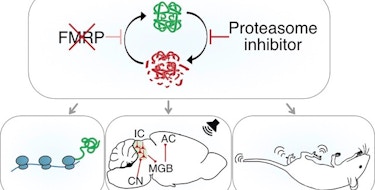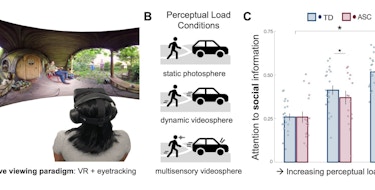As the number of individuals with genetically diagnosed forms of autism spectrum disorder (ASD) increases, clinicians face the difficult task of counseling families in regard to the likelihood of ASD recurring in a subsequent birth. So far, most studies have not quantified and accounted for the impact of gonadal mosaicism on estimates of recurrence risk. A new study now used whole-genome sequencing of sperm DNA to stratify this risk, with clear implications for genetic counseling.
The new work was supported in part by a Research Award to SFARI Investigator Joseph Gleeson. The authors began by carrying out deep (200x) whole-genome sequencing of sperm and blood DNA samples from fathers in eight families where there was a child with an ASD diagnosis. Of the 2.5 percent of de novo single-nucleotide variants found to be mosaic, most were detectable in sperm — many at frequencies that were clearly clinically significant. Using droplet digital PCR of sperm DNA samples from fathers in families where a known pathogenic ASD risk variant had been identified in a child, they further report one instance where the relatively high frequency of the variant in the father’s sperm suggested that it might underlie the neurodevelopmental abnormalities in two of his other children — a prediction that was subsequently confirmed.
The totality of the evidence suggests that the vast majority of de novo mutations have a recurrence risk close to 0 percent (undetectable in sperm), but a small fraction (3–4 percent) are at substantially higher risk, which is proportional to the allelic fraction observed in sperm. If employed in the setting of genetic counseling, the authors caution that the ‘decision matrix’ will have to account not only for the likelihood of inheritance of the mutation, but also its penetrance and impact, which in some cases will be difficult to determine.

Reference(s)
Autism risk in offspring can be assessed through quantification of male sperm mosaicism.
Breuss M.W., Antaki D., George R.D., Kleiber M., James K.N., Ball L.L., Hong O., Mitra I., Yang X., Wirth S.A., Gu J., Garcia C.A.B., Gujral M., Brandler W.M., Musaev D., Nguyen A., McEvoy-Venneri J., Knox R., Sticca E., Botello M.C.C., Uribe Fenner J., Pérez M.C., Arranz M., Moffitt A.B., Wang Z., Hervás A., Devinsky O., Gymrek M., Sebat J., Gleeson J.


